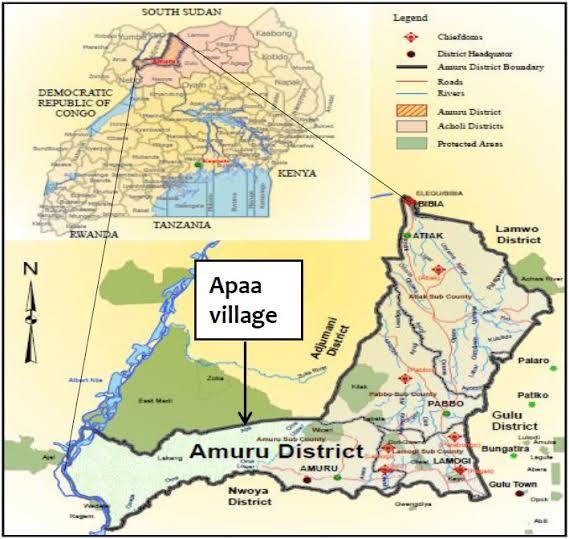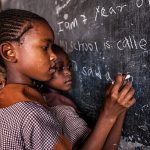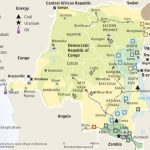In the heart of northern Uganda, where the lush savannahs of Apaa straddle Adjumani and Amuru districts, a bitter conflict has raged for over a decade, tearing apart communities and leaving a trail of blood and displacement. The Apaa land dispute, pitting the Madi of West Nile against the Acholi of Amuru, is no mere quarrel over territory—it’s a tangled web of colonial legacies, conservation policies, and political betrayal that has turned neighbors into enemies.The roots of this tragedy trace back to 1911, when British colonial rulers drew arbitrary boundaries, leaving Apaa as a shared space for Madi and Acholi communities. But peace was disrupted in 1963 when the area was declared a hunting ground, only to be re-gazetted in 2002 as the East Madi Wildlife Reserve while Acholi families languished in displacement camps during the Lord’s Resistance Army (LRA) war.
When the Acholi returned, they found their ancestral lands claimed by conservation authorities and Adjumani’s Madi residents, sparking a fierce struggle over identity and survival.By April 2025, the conflict has reached a boiling point. In 2023, the Uganda People’s Defence Force (UPDF) evicted 40,000 “illegal settlers,” displacing over 10,000 people after tribal clashes. That December, six lives were lost, and 11 others wounded in brutal attacks across Apaa’s villages. Early 2024 brought more sorrow—four more deaths, including a UPDF officer, as cries of frustration echoed on social media. “When will this end?” pleaded a post from @WestNileVoice on X. In March 2025, a proposal by MP Anthony Akol to make Apaa a new district ignited fresh outrage, with Adjumani leaders branding it an “invitation to war.”The human toll is staggering. Over 10,000 people have been uprooted since 2018, their homes razed by Uganda Wildlife Authority (UWA) rangers and police. In 2017, elderly Acholi women stripped naked in protest—a desperate cry against land grabs. The closure of Apaa’s market in 2019 left 1,500 vendors jobless, while fear keeps farmers from their fields, plunging families into poverty. Ethnic mistrust festers, with Madi and Acholi pointing fingers, each accusing the other of aggression.
Behind the chaos, darker forces may be at play. A 2025 X post by @uk_nup claimed the conflict is less about tribalism and more about “land grabbing by the ruling party,” with conservation policies masking economic greed—perhaps tied to tourism or oil. Historical records show the 2002 gazetting ignored Acholi voices, and political heavyweights like Gen. Moses Ali and MP Anthony Akol have been accused of fanning flames for personal gain. Government efforts, like President Museveni’s 2021 satellite imagery plan or the 2023 judicial commission led by retired Chief Justice Bart Katureebe, have fizzled, leaving communities with little hope.Yet, amidst the despair, glimmers of resilience shine. NGOs like Saferworld have fostered dialogue through Community Action Groups, building fragile bridges between Madi and Acholi.
Acholi elder Sabino Ochan’s apology for past abuses marked a step toward healing, though political interference often drowns out such efforts.The path to peace demands bold action: clear boundary demarcation using historical records, co-management of the wildlife reserve to balance conservation with human needs, and empowering traditional leaders to mediate without political meddling. Inter-ethnic dialogue, free from manipulation, could mend broken ties, while investments in agriculture and livelihoods might ease the scramble for land.As the sun sets over Apaa’s contested plains, the question lingers: will Uganda’s leaders rise above greed and division to end this bloodshed, or will the land continue to bear the scars of a people betrayed?
For support for the next Story. Kindly support on 0705164264/0771310625
This post was created with our nice and easy submission form. Create your post!




